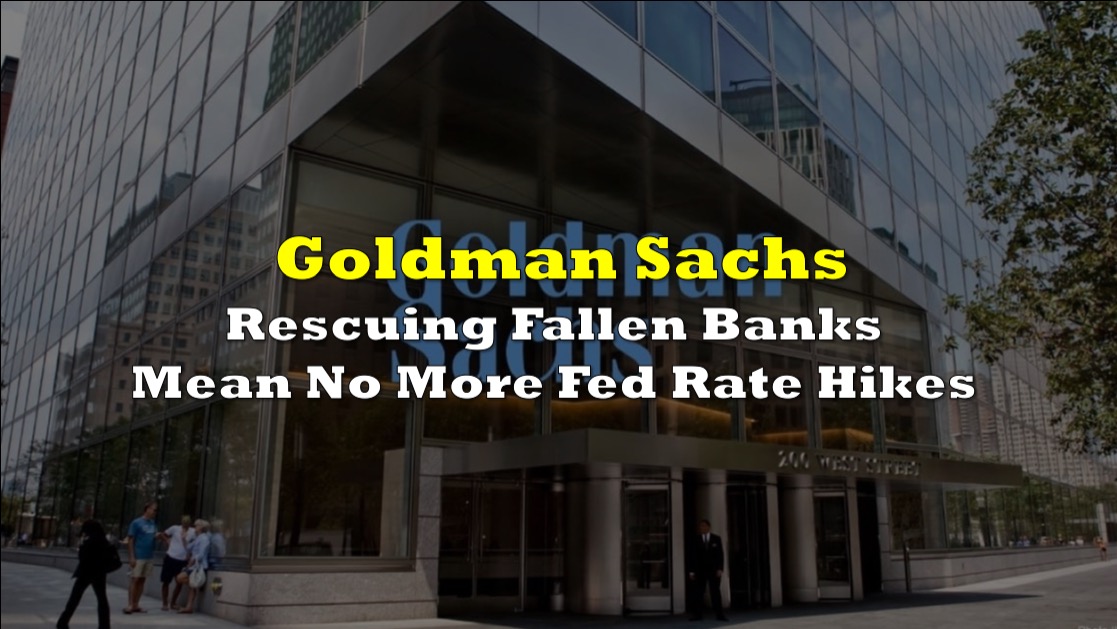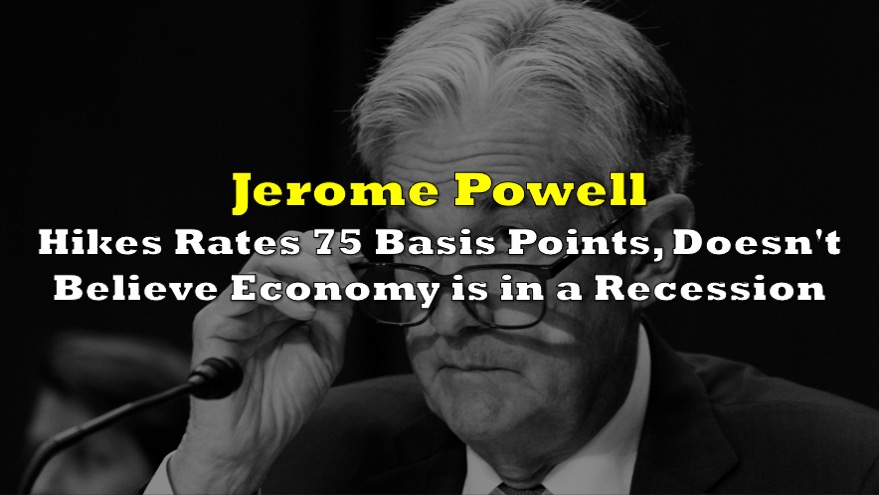According to Goldman Sachs, there is no longer a rationale for the Federal Reserve to raise interest rates at its meeting next week, citing “recent stress” in the financial industry.
“In light of recent stress in the banking system, we no longer expect the FOMC to deliver a rate hike at its March 22 meeting with considerable uncertainty about the path beyond March,” said a team led by chief economist Jan Hatzius in a note to clients late Sunday.
Goldman had expected 25 bps hike, so lowers terminal rate forecast to 5.25-5.5%.
— Jamie McGeever (@ReutersJamie) March 13, 2023
"We have left unchanged our expectation that the FOMC will deliver 25bp hikes in May, June, and July and now expect a 5.25-5.5% terminal rate, though we see considerable uncertainty about the path."
This comes as Fed fund futures show the likelihood of the Fed raising interest rates by 50 basis points next week has dropped from 70% to zero in recent days.
The swap market is now pricing in just one more 25 bps rate hike, down from four since Thursday, with the first cut priced in for December. Recession worries and financial stability the main focus pic.twitter.com/IAY9SBlQKk
— Ole S Hansen (@Ole_S_Hansen) March 13, 2023
Earlier on Sunday, US regulators announced measures to alleviate fears of contagion following the failure of Silicon Valley Bank. Signature Bank was also closed down by regulators, alleging systemic danger.
According to Goldman Sachs experts, the assistance package offered on Sunday falls short of similar actions made during the 2008 financial crisis. The Treasury recognized SVB and Signature as systemic threats, and the Fed established a new Bank Term Financing Program to assist institutions affected by market volatility following the SVB disaster.
“Both of these steps are likely to increase confidence among depositors, though they stop short of an FDIC guarantee of uninsured accounts as was implemented in 2008,” they wrote. “Given the actions announced today, we do not expect near-term actions in Congress to provide guarantees.”
Goldman Sachs noted that they continue to expect 25 basis point hikes in May, June, and July, while maintaining their terminal rate forecast of 5.25% to 5.5%.
Jamie McGeever, market columnist at Reuters, tweeted that the decline in US 2-year yields intensified when Goldman dropped the Fed rate hike call. Yields are presently around 4.40%, down more than 70 basis points from Thursday.
The 2-year yield is said to have fallen bigger than “the dotcom crash, [Long-Term Capital Management hedge fund], 9/11, or Lehman [collapse] and the [Great Financial Crisis].”
At current levels, down 70 bps since Thursday, the 2-year US Treasury yield is posting its biggest three-day decline since the Black Monday stock market crash of 1987.
— Jamie McGeever (@ReutersJamie) March 13, 2023
A bigger fall than anything seen around the dotcom crash, LTCM, 9/11, or Lehman and the GFC, pic.twitter.com/rsnqAWbck4
The FDIC announced that it has moved all Silicon Valley Bank deposits to a newly formed “bridge bank,” Silicon Valley Bank N.A. — appointing Tim Mayopoulos as CEO, a former president and CEO of the Federal National Mortgage Association. Meanwhile, SVB Financial has formed a restructuring committee to investigate strategic alternatives for the holding company and its subsidiaries SVB Capital and SVB Securities. The shares have been suspended since before the market opened on Friday.
Over the weekend, US regulators told Silicon Valley Bank depositors that their money will be returned with no consequences for US taxpayers, but share and bondholders look to be out of luck. Depositors of the crypto-friendly New York-based Signature Bank, which was closed down by its state regulator on Sunday, received similar guarantees. To reduce the risk of contagion, the Fed also launched a new emergency lending program for troubled banks.
US President Joe Biden stated that Americans should have confidence in their banking system and deposits.
Yet, mayhem reigns on both sides of the Atlantic. Despite a Fed and JPMorgan financial infusion and executive reassurances, First Republic Bank is down 60%, tainted by similarities to SVB.
The SVB U.K. HSBC has purchased arm for £1 in a deal mediated by the UK Government and Bank of England.
Information for this briefing was found via CNBC, Market Watch, and the sources mentioned. The author has no securities or affiliations related to this organization. Not a recommendation to buy or sell. Always do additional research and consult a professional before purchasing a security. The author holds no licenses.









